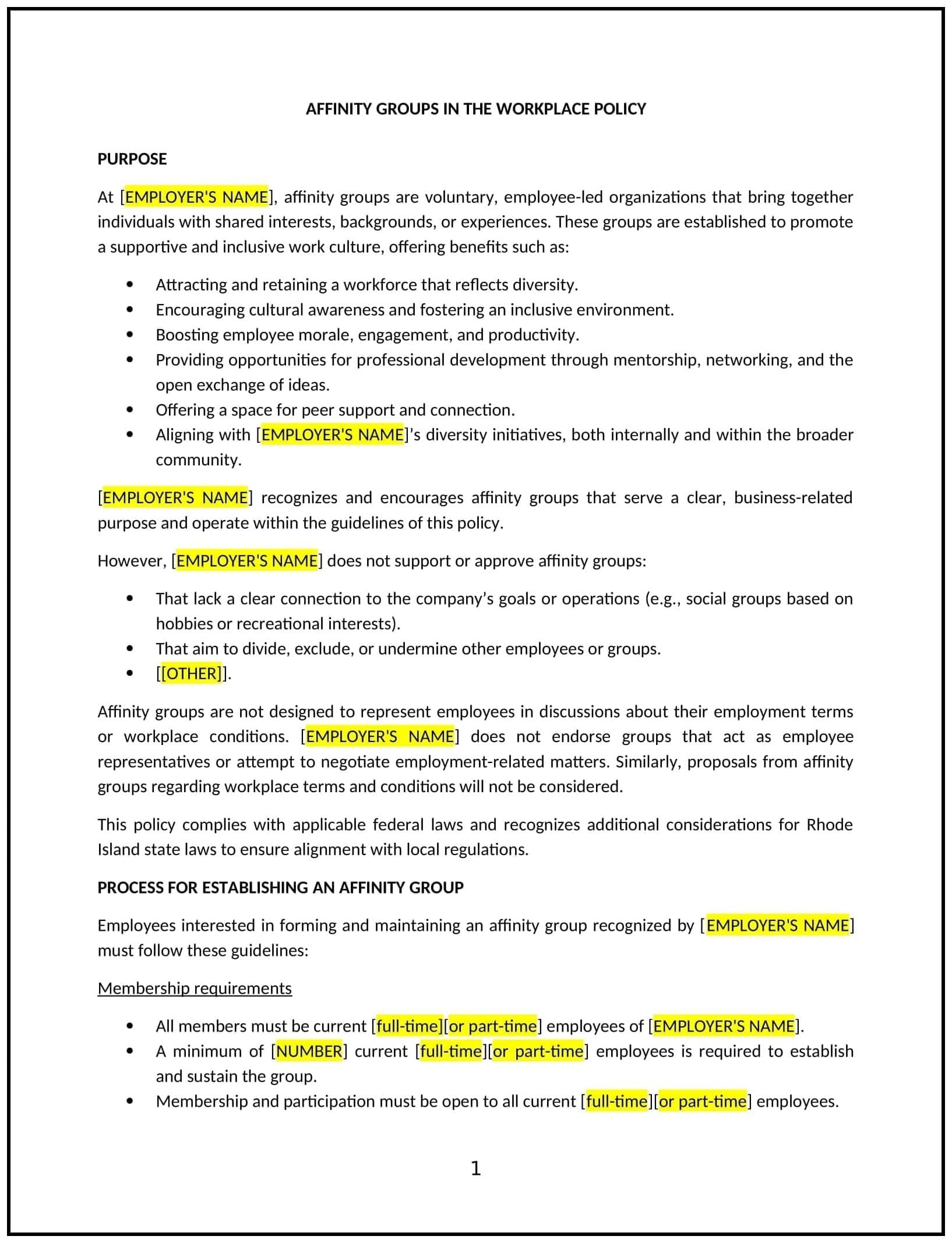Affinity groups in the workplace policy (Rhode Island): Free template
Got contracts to review? While you're here for policies, let Cobrief make contract review effortless—start your free review now.

Customize this template for free
Affinity groups in the workplace policy (Rhode Island)
This affinity groups in the workplace policy is designed to help Rhode Island businesses establish guidelines for supporting employee-led affinity groups that promote diversity, inclusion, and professional development. It outlines procedures for forming, managing, and participating in affinity groups while ensuring alignment with the business’s goals and values.
By adopting this policy, businesses can foster a more inclusive workplace, enhance employee engagement, and align with general best practices for diversity and inclusion.
How to use this affinity groups in the workplace policy (Rhode Island)
- Define affinity groups: Explain what constitutes an affinity group, such as employee-led networks focused on shared identities, interests, or goals.
- Establish formation procedures: Provide steps for employees to form affinity groups, including submitting proposals and obtaining approval.
- Address participation: Outline guidelines for employee participation in affinity groups, such as time commitments and meeting schedules.
- Set alignment requirements: Ensure that affinity groups align with the business’s goals, values, and diversity initiatives.
- Train managers: Educate supervisors on supporting affinity groups and promoting inclusivity in the workplace.
- Review and update: Assess the policy annually to ensure it aligns with evolving business needs and diversity standards.
Benefits of using this affinity groups in the workplace policy (Rhode Island)
This policy offers several advantages for Rhode Island businesses:
- Promotes inclusivity: Encourages the formation of affinity groups that support diverse employee communities.
- Enhances employee engagement: Provides opportunities for employees to connect, share experiences, and grow professionally.
- Aligns with best practices: Offers a structured approach to managing and supporting affinity groups.
- Builds trust: Demonstrates a commitment to diversity, inclusion, and employee well-being.
- Reduces turnover: Encourages employees to stay with the business by fostering a sense of belonging and community.
Tips for using this affinity groups in the workplace policy (Rhode Island)
- Communicate the policy: Share the policy with employees and include it in the employee handbook.
- Provide training: Educate managers on supporting affinity groups and promoting inclusivity in the workplace.
- Monitor adherence: Regularly review affinity group activities to ensure alignment with the policy and business goals.
- Address issues promptly: Take corrective action if affinity groups deviate from the policy or create conflicts.
- Update regularly: Assess the policy annually to ensure it aligns with evolving business needs and diversity standards.